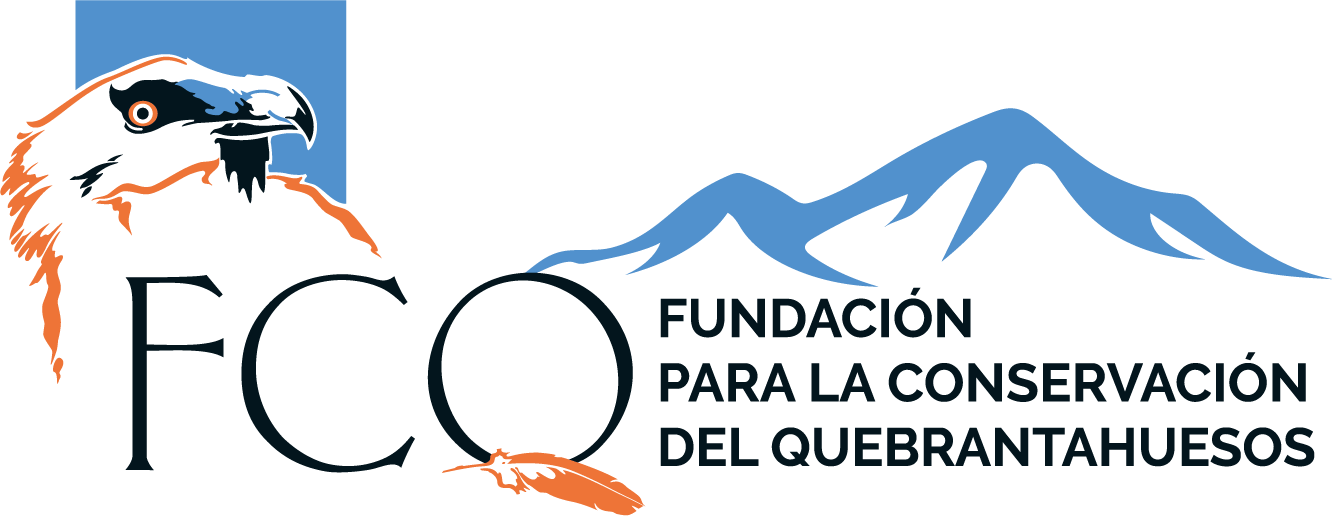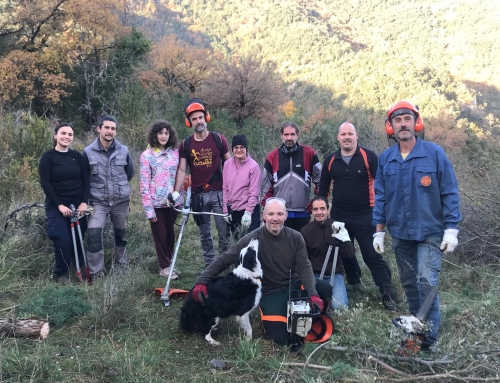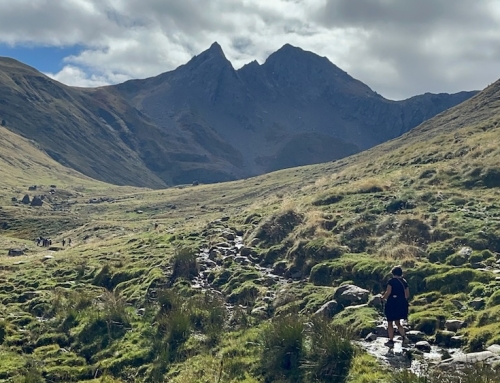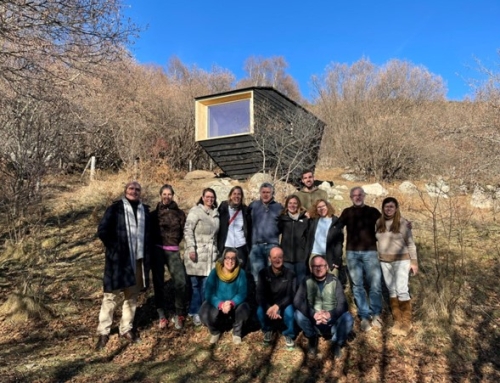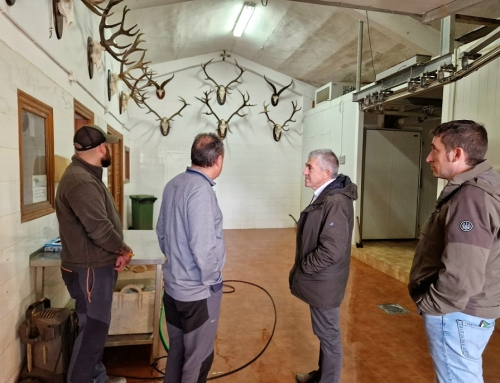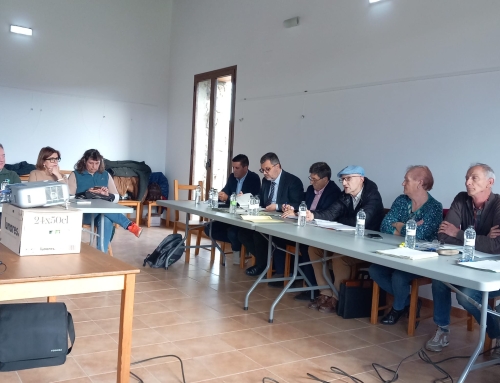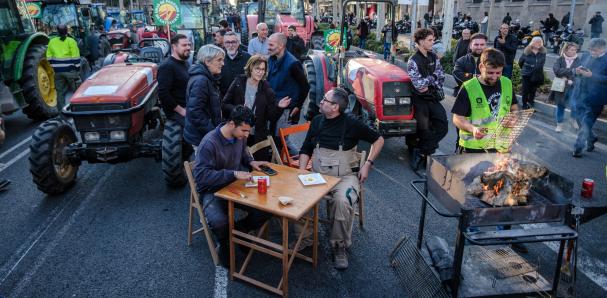
The 10 reasons for the crisis in the countryside… and none of them is due to environmental protection.
Trade and agricultural policies, unrelated to the necessary adaptation to climate change and the preservation of biodiversity, are responsible for the damage that has unleashed the unease of the agrarian world. The ‘tractoradas’ that travel through Spain have made flag and banner against the Agenda 2030, approved by the United Nations, and against the defenders of the environment. The Sustainable Development Goals have been presented by some as contrary to the interests of the countryside. However, the experts consulted argue that trade and agricultural policies, unrelated to the necessary adaptation to climate change and the preservation of biodiversity, are responsible for the damage that has unleashed the unease of the agrarian world, victim of an unfair distribution of benefits.
Despite this, the current model of the countryside continues to win the game on the European Union’s chessboard, in what scientists and environmentalists consider a “flight forward”. The consequences? An increasingly deteriorated environment, which goes against the interests of farmers. The rural crisis does not justify a war between farmers and environmentalists. There are many other underlying reasons for the crisis in the countryside, as evidenced by the tractors on the roads:
Global trade
The effects of agricultural liberalization: asparagus from China
One of the reasons for the rural crisis in Europe has to do with something that environmental and development organizations have been denouncing for years: they are trade agreements that have caused that today you can buy asparagus from China at 2.5 euros and from Navarra at 6.9 euros. And in the same supermarket.
Tariff liberalization promoted since the end of the last century has led to the arrival of large agri-food companies in the southern hemisphere, many of them European, from where they promote monocultures that impact the environment and drive local farmers out of Spain’s borders. “The WTO emerged in 1995 with the liberalization of agricultural trade. Then, it was good for the EU because its subsidized agriculture triumphed abroad, sinking local productions, but the panorama has changed and now it turns out that in Spain we have lost 400,000 farms since 1999, and 4.2 million in the EU”, recalls the researcher Marta G. Rivera, from the Ingenio center (CSIC-UPV), who has been the author of the IPCC.
Agreements such as the Mercosur agreement, pending approval, which seeks to further facilitate imports from South America, have been repeatedly denounced by the most important environmental organizations, both in Spain and at the European level.
2. Aid per hectare
“Production for today and hunger for tomorrow”.
For years, scientific and environmental studies have been denouncing that the Community agricultural policy (CAP), which grants aid according to hectares of cultivation, benefits the big businessmen of the sector and harms small farmers. SEO/Birdlife has warned that the crisis in the countryside responds to this model, because “they have ignored the importance of nature and the environment in a sector totally dependent on the good state of natural resources: water, soil and biodiversity”.
The CSIC scientist Fernando Valladares recalls that this system promotes “production for today and hunger for tomorrow”. The expert considers inexplicable the backward step that has been taken in the first measures that were going to reduce the environmental impacts of the CAP, promoting sustainability instead of productivity. For this expert “it makes no sense to eliminate this environmental protection” and allow the entry of products “that come from outside without environmental or social certificates, just because they leave more margins for large agribusiness,” he says.
3. Price increases
Less use of tractors would save fuel: less plowing not necessary
Fuels and inputs (fertilizers and pesticides) are at the mercy of geopolitical crises. So are seeds. These are products in the hands of large multinationals. Celsa Peiteado, from WWF Spain, points out that price increases are the reflection of a systemic crisis of agribusiness and dependence on these products since the Green Revolution. But now they are reaching the ‘peak’, that is, the moment when more has been extracted than is left. “The FAO itself highlights that this system has a hidden cost of 10% of global GDP,” he reminds.
From another angle, Valladares explains how “agricultural soil is a physical support that needs bugs. It cannot be sterile, because if you kill everything, if you burn the stubble, pests enter and you need more pesticides and fertilizers. With agroecology and regenerative agriculture, the first years we produce less, but in a short time we have less expenses in inputs and the increases affect less. Also, with less use of tractors, fuel would be saved because it is known that it is not necessary to plow as much”.
4. Message manipulation
Environmentalists are not against the countryside
Another of the evils that afflict the primary sector is a confusing information, when not erroneous or manipulated in an interested way, about what really affects them. Hoaxes such as that ecologists are against extensive livestock farming, when they have been defending it for years, that they release pests, supposed fumigations to prevent rain… “We ecologists have been denouncing for a long time that the industrial food system harms farmers and proposing alternatives”, says Tom Kucharz, from Ecologists in Action.
Valladares, for his part, defends that “we must let the farmers talk about the tractorades and then make them see the contradictions so that they do not allow themselves to be manipulated and do not defend what goes against them”. In the same vein, food sovereignty expert Gustavo Duch highlights how this concept is being used without understanding it: “They get carried away by populism. The food sovereignty movement does not seek to oppose farmers from other countries and, in addition, it defends social improvements.
In Spain there are many organic farmers who are invisible and exist within that 4% of the agricultural population”. “We do many campaigns for the consumption of local, seasonal food and we work with associations that are not in the streets,” Peiteado, from WWF, said. “Another reality is being built in which the democratic system is being criticized, the 2030 Agenda is being criticized without knowing that it is fighting against poverty and for a future based on ideological populism,” criticizes Valladares.
5. Climate change
“You can’t turn a desert into an irrigated area and then demand water.”
Agriculture, forestry and land use account for 22% of global greenhouse gas emissions, according to the IPCC (Intergovernmental Panel on Climate Change) report of 2023. The sector is therefore partly responsible for water and rainfall shortages and extreme events caused by climate change, which in turn generate losses and damages. Despite this, irrigation in semi-desert areas and the exploitation of aquifers are being insisted on today, while at the same time demands are being made for water transfers. Environmentalists and scientists have long been pointing out that production must be adapted to the new climate scenario.
“You can’t turn a desert into an irrigated area due to pressure from investors and then demand water. Besides, we already produce more food than we need, although how it is distributed is another matter,” reminds the CSIC scientist. “Without water,” Peiteado adds, “there is no agriculture.” And it is getting less and less: according to a recent report by Ecologists, 36% of the country’s surface water is already contaminated by chemical pesticides.
6. Desertification
Spanish territory under serious threat
74% of the Spanish territory “is susceptible to desertification”, calculates the Ministry of Ecological Transition. In Almeria alone, a third of its soil has become arid in the last decade, says the CSIC. The causes: climate change and human action on the soil, that is, agricultural overexploitation and inadequate and inefficient use of water. This desertification, according to the FAO and the EU, which are based on science, must be fought by restoring soils, for which the new CAP measures, reduced before their entry into force, bet on supporting those who leave land fallow or a minimum vegetation cover that prevents its loss with the rains, or those who rotate crops so that soils are nourished.
“Agroecology reduces pesticides and fertilizers and also generates employment, while ecosystems brought to the limit of saturation are less productive. Supporting the industrial production model goes against farmers’ autonomy and makes them more vulnerable,” stresses Marta G. Rivera. In addition, a country where desertification is growing exports water (in the form of meat, vegetables and fruits) to Europe and China, markets accessible to large companies. “Rotation crops are known to work for agricultural soils, even making fallow unnecessary, but it is not interesting because it is not a business for those who insist on overexploiting”, adds Valladares.
7. Biodiversity crisis
Intensive agricultural activity threatens 48% of habitats and 30% of species
The industrial agricultural system is behind the loss of biodiversity, which in turn is impacting agriculture. According to SEO/Birdlife, in Spain, 48% of habitats and 30% of species are threatened by intensive agricultural activity, and 80% of habitats associated with extensive agriculture are in an unfavorable state of conservation. Birds associated with agriculture alone, an indicator of the health of the countryside, have declined by 55% in Europe in the last 30 years.
Once again, agrochemicals and the aforementioned overexploitation of available water favor their disappearance. Science has shown that protecting biodiversity is fundamental because it favors pollination, mobilizes soil nutrients and allows the control of pests and diseases, among other advantages. “Crops without a ladybug, a spider or an ant generate total dependence on industrial inputs,” says Valladares.
Bureaucracy
“If you were looking for less production and higher quality, there would be fewer papers to make.”
One of the big problems of the European Union is excessive bureaucracy. “It is something that affects all sectors, farmers or scientists, it is not only a problem of this sector,” the biologist recalls. These are mechanisms intrinsic to the European institutions, justified by the necessary control of the aid that is granted. “If less and higher quality production were sought, there would be less paperwork to do. Even so, there is a lot of underground economy in the sector, many people working exploited and without contracts”, mentions Valladares.
From WWF, Peiteado recognizes that the system “cannot be the same for a small farm as for a large farm”, so he defends a change in that sense, but always favoring those who have “good practices”. And he mentions farmers who make “territorial contracts” to obtain aid every five years, a proposal that has been legislated for some time and is very much in the minority. Valladares adds that it will be necessary to simplify paperwork “but not to ask for subsidies for what should not be done; that is, to plant non-traditional seeds with that money and not to take care of the soil and biodiversity”.
8. Ownership of soils
Investment funds land in the countryside
Another factor in play that has nothing to do with environmental defense is the phenomenon of land ownership concentration. Rural abandonment and the aging of the population (41% of the population is over 65 years old) has led to the landing of investment funds in the countryside, as highlighted by the Ocampo web platform in its report “Investment in rural land 2023”. Peiteado puts the focus there, who denounces how the CAP does not favor young people to receive aid to buy land, so now they receive the farms only by inheritance, while these investment funds are left with those that are for sale.
This handicap is also highlighted by researcher Marta G. Rivera. “With the closure of farms, land is being concentrated in the hands of large companies that are going to exploit it to the maximum, leaving out an agroecology that gives results and generates employment”. “They are large offshored investors who push money production,” concludes Fernando Valladares.
9. Distribution
Ten companies in the world transport 90% of the world’s foodstuffs
The economic margins that the links in the distribution of agricultural production have not ceased to increase in recent years. A minority part of the agricultural sector, in fact, has gone to protest in distribution logistics facilities and large surfaces that impose prices below the cost of production, unaffordable without large farms. The government approved in 2021 the Law of the Food Chain to prohibit selling at a loss, but it is not complied with. “Distributors are not worried about the protests, they continue to make a lot of money because we would continue to eat even if the whole sector stopped because we get products from large companies outside,” says Gustavo Duch.
As Kucharz points out, “the WTO also approved the liberalization of the distribution sector and now it turns out that states cannot set limits and protect prices, neither for small businesses nor for small producers”. In fact, he mentions, only 10 companies in the world transport 90% of the food, another 10 have in their hands all the food transformation and a dozen more sell 30% of all the food consumed, more in Spain.
Prepare this healthy baked avocado with egg and mushrooms Changes are being introduced in consumption trends, from a Mediterranean diet to a globalized one in which the consumer introduces in his menu products that were exotic or that are produced out of season and have a great environmental cost, inside and outside the national territory. This is the case of avocado, whose cultivation has grown more than 50% in a decade; mango, 200% more; or kiwis, which are already produced even in Valencia.
The avocado in Malaga is significant, given the cost of water involved in an area that already has consumption restrictions due to drought. The buyer also finds products that come from other parts of the world, such as melons from Brazil, which flood supermarkets in winter, from large monocultures in few hands. “The agribusiness magnates make money, but there is a lack of states and courageous politicians to put a stop to their profits,” Valladares points out.
Source:
